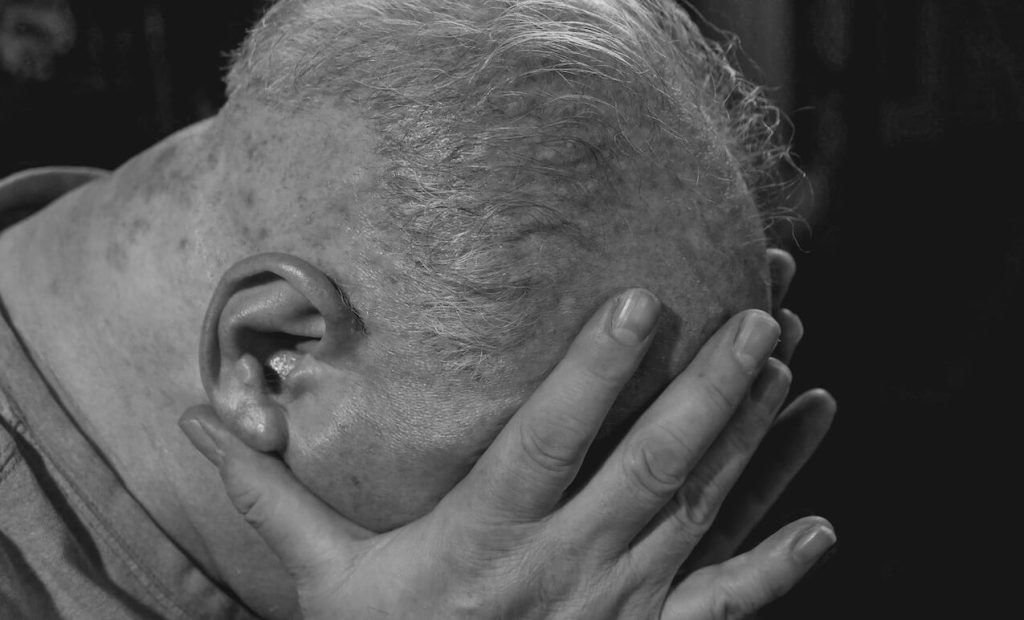As we age, our bodies undergo a variety of changes that can affect our ability to sleep. Many seniors find themselves struggling to fall asleep, stay asleep, or wake up feeling rested. Sleep problems are common in seniors, and they can lead to a host of health problems, including depression, anxiety, memory problems, and an increased risk of falls. In this article, we’ll explore the importance of sleep for seniors and ways to promote better sleep quality in senior care.
Table of Contents

Why Sleep is Important for Seniors
Sleep is essential for people of all ages, but it becomes even more critical as we age. Older adults require seven to nine hours of sleep each night to promote physical and mental well-being. Sleep is necessary for repairing and rejuvenating the body, strengthening the immune system, and regulating hormones. Good sleep can also improve mood, cognitive function, and overall quality of life.
Common Sleep Problems in Seniors
Sleep problems are common in older adults, with up to 50% of seniors reporting difficulty sleeping. Some of the most common sleep problems in seniors include:
Insomnia
Insomnia is a sleep disorder characterized by difficulty falling or staying asleep. Seniors with insomnia may experience frequent awakenings throughout the night, early morning awakenings, or difficulty falling back asleep after waking up.
Sleep Apnea
Sleep apnea is a sleep disorder characterized by interrupted breathing during sleep. Seniors with sleep apnea may snore loudly, gasp for air during sleep, or wake up feeling tired even after a full night’s sleep.
Restless Leg Syndrome
Restless leg syndrome is a sleep disorder characterized by an irresistible urge to move the legs during sleep. Seniors with restless leg syndrome may experience discomfort or pain in the legs, making it difficult to fall or stay asleep.
Sleep Disorders in Seniors
Sleep disorders are common in older adults and can contribute to a range of health problems. Some of the most common sleep disorders in seniors include:
Obstructive Sleep Apnea
Obstructive sleep apnea is a sleep disorder that causes breathing to stop and start during sleep due to a blockage in the airway. This can lead to poor sleep quality and an increased risk of cardiovascular disease, stroke, and other health problems.
Insomnia Disorder
Insomnia disorder is a sleep disorder characterized by difficulty falling or staying asleep, waking up too early, or experiencing non-restorative sleep. Seniors with insomnia disorder may experience daytime fatigue, irritability, and difficulty concentrating.
Circadian Rhythm Sleep Disorders
Circadian rhythm sleep disorders are sleep disorders that affect the timing of sleep, making it difficult to fall asleep at night and wake up in the morning. Seniors with circadian rhythm sleep disorders may experience daytime fatigue, irritability, and difficulty concentrating.
Causes of Sleep Problems in Seniors
Many factors can contribute to sleep problems in seniors, including:
Aging Process
As we age, our bodies undergo many changes that can affect our sleep patterns. Changes in our sleep-wake cycle, hormone levels, and circadian rhythms can all contribute to sleep problems in seniors.
Medical Conditions
Many medical conditions common in seniors can also contribute to sleep problems. These include chronic pain, arthritis, heart disease, diabetes, and respiratory problems.
Read more in Navigating the Complexities of Medicare and Medicaid: A Guide for Seniors and Caregivers
Medications
Many medications commonly prescribed to seniors can also affect sleep. These include antidepressants, antihistamines, and medications for high blood pressure.
Lifestyle Factors
Lifestyle factors can also play a role in sleep problems in seniors. These include lack of exercise, poor diet, caffeine and alcohol consumption, and smoking.
Ways to Promote Better Sleep in Seniors
There are many things seniors can do to promote better sleep, including:
Establishing a Consistent Sleep Schedule
Seniors should aim to go to bed and wake up at the same time each day to help regulate their sleep-wake cycle.
Creating a Relaxing Bedtime Routine
Seniors should establish a relaxing bedtime routine that can help them wind down and prepare for sleep. This may include reading, taking a warm bath, or listening to soothing music.
Creating a Sleep-Conducive Environment
Seniors should create a sleep-conducive environment that is cool, quiet, and dark. This may include using blackout curtains, earplugs, or a white noise machine.
Avoiding Stimulants Before Bed
Seniors should avoid consuming caffeine or alcohol before bedtime, as these can interfere with sleep.
Getting Regular Exercise
Regular exercise can help seniors fall asleep faster and stay asleep longer. However, seniors should avoid exercising too close to bedtime, as this can interfere with sleep.
Using Relaxation Techniques
Relaxation techniques, such as meditation, deep breathing, or progressive muscle relaxation, can help seniors relax and fall asleep more easily.
Sleep Medications for Seniors
While lifestyle changes are often the first line of treatment for sleep problems in seniors, medications may also be prescribed in some cases. Some common sleep medications for seniors include:
Benzodiazepines
Benzodiazepines are a class of medications commonly prescribed for insomnia. However, they can also have side effects such as drowsiness, confusion, and increased risk of falls.
Non-Benzodiazepine Hypnotics
Non-benzodiazepine hypnotics are a newer class of medications that are often prescribed for insomnia. They are generally considered to be safer than benzodiazepines, but can still have side effects such as dizziness, headache, and nausea.
Melatonin
Melatonin is a natural hormone that regulates sleep-wake cycles. It is available as a supplement and may be helpful for seniors with sleep problems.
Benefits of Good Sleep in Senior Care
Good sleep is essential for seniors’ physical and mental well-being. It can help prevent or manage many health problems, including depression, anxiety, memory problems, and an increased risk of falls. Good sleep can also improve mood, cognitive function, and overall quality of life.
How Caregivers Can Help Seniors Sleep Better
Caregivers can play an important role in helping seniors sleep better. Some ways caregivers can help include:
Creating a Sleep-Conducive Environment
Caregivers should create a sleep-conducive environment for seniors that is cool, quiet, and dark. They may also need to address any issues that may interfere with sleep, such as uncomfortable bedding or a noisy roommate.
Encouraging Exercise
Caregivers should encourage seniors to get regular exercise, as this can help improve sleep quality. They can also help seniors find activities they enjoy and can participate in safely.
Monitoring Medications
Caregivers should be aware of any medications seniors are taking that may affect sleep and work with healthcare providers to adjust dosages or switch to different medications if needed.
Establishing a Consistent Sleep Schedule
Caregivers should help seniors establish a consistent sleep schedule by setting a regular bedtime and wake-up time and encouraging them to stick to it.
Providing Emotional Support
Seniors may experience anxiety or depression related to sleep problems, and caregivers can provide emotional support and reassurance.
Using Relaxation Techniques
Caregivers can teach seniors relaxation techniques, such as deep breathing or progressive muscle relaxation, to help them fall asleep more easily.
Conclusion
Good sleep is essential for seniors’ health and well-being, and many factors can contribute to sleep problems in this population. However, there are also many things seniors and caregivers can do to promote better sleep, including establishing a consistent sleep schedule, creating a relaxing bedtime routine, and creating a sleep-conducive environment. While medications may be prescribed in some cases, lifestyle changes are often the first line of treatment for sleep problems in seniors. Caregivers can play an important role in helping seniors sleep better by providing emotional support, monitoring medications, and encouraging regular exercise.
FAQ
What are some common causes of sleep problems in seniors?
The aging process, medical conditions, medications, and lifestyle factors can all contribute to sleep problems in seniors.
What are some ways to promote better sleep in seniors?
Establishing a consistent sleep schedule, creating a relaxing bedtime routine, creating a sleep-conducive environment, avoiding stimulants before bed, getting regular exercise, and using relaxation techniques can all promote better sleep in seniors.
Are sleep medications commonly prescribed for seniors?
Yes, sleep medications may be prescribed in some cases. Benzodiazepines, non-benzodiazepine hypnotics, and melatonin are common sleep medications for seniors.
What are some benefits of good sleep in senior care?
Good sleep can help prevent or manage many health problems and improve mood, cognitive function, and overall quality of life.
How can caregivers help seniors sleep better?
Caregivers can help seniors sleep better by creating a sleep-conducive environment, encouraging exercise, monitoring medications, establishing a consistent sleep schedule, providing emotional support, and teaching relaxation techniques.

Leave a Reply